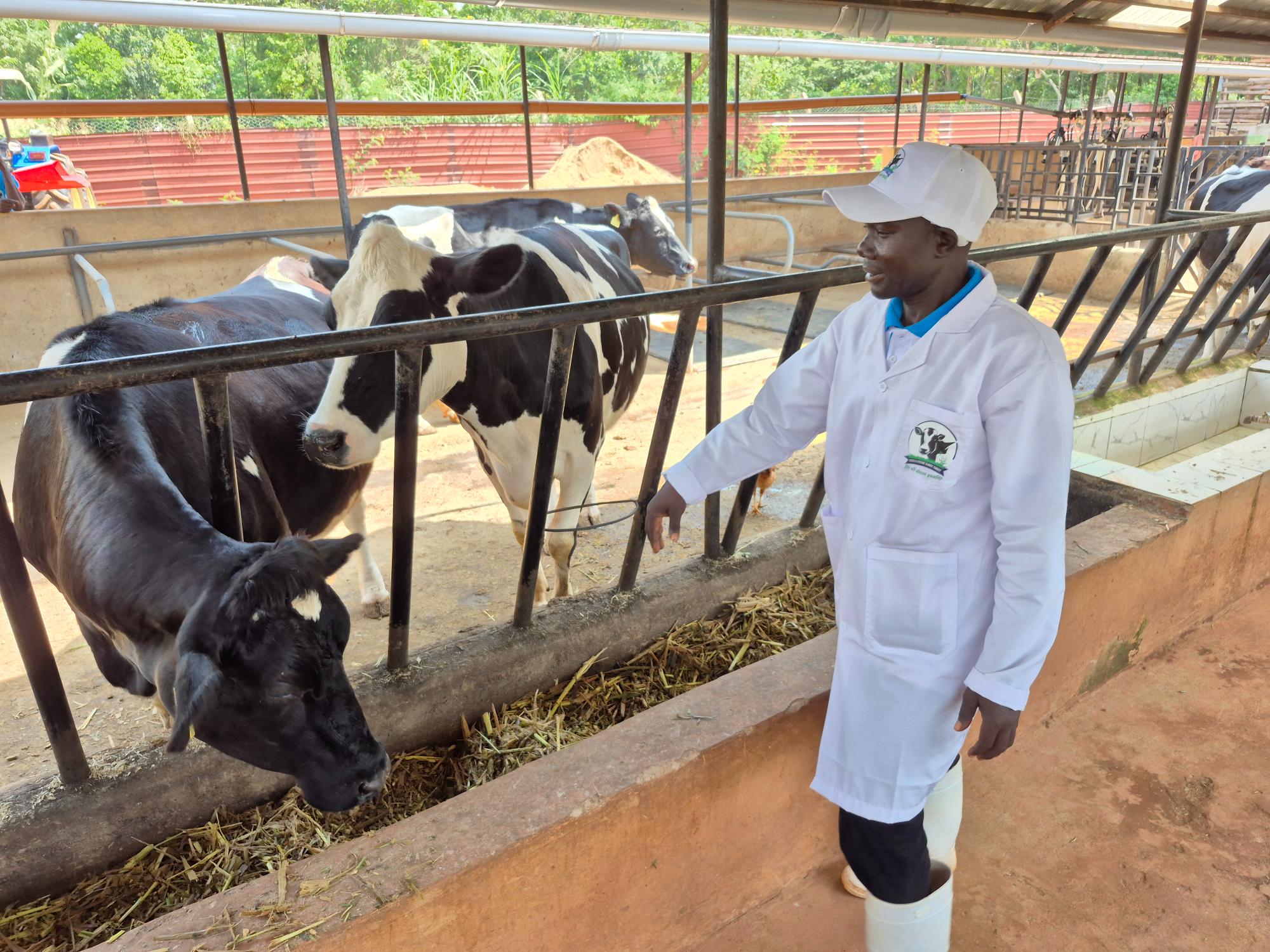

Dairy farmers in Western are grappling with limited access
to quality artificial insemination (AI) services, threatening milk production
and livestock health in the region.
Many, like Suzan Ouma of Moo and More Dairy Farm in Butula, Busia county, are calling on both county and national governments to establish reliable AI centres and strengthen extension services to curb exploitation by private providers and boost productivity.
Ouma said farmers often depend on private extension service providers, who sometimes provide the wrong semen.
“Our biggest challenge is that sometimes the provider uses expired semen, even after we’ve paid,” she said.
Ouma has had to blacklist certain service providers due to their poor service, which jeopardises her animals. Repeating inseminations is expensive and could be resolved if the government offered trustworthy extension officers who provide quality AI services.
“There are no storage facilities for the semen, and at Sh3,500 per session, the costs are high, especially with repeat applications,” she said.
Ouma called on the county and national governments to establish AI centres in the region, to make services more affordable, contributing to national growth.
She spoke during a community field day at the farm where farmers from Busia and neighbouring counties who visited the farm were able to access AI at lower rates.
“It is our hope that the government will step in to end practices that create distrust among farmers,” she said.
Peter Bwire, a dairy farmer with 17 cows, pointed out the need to urgently address the sector's challenges as more young people turn to agriculture.
“I’ve visited Moo and More Dairy Farm, and I’m learning a lot to help improve my own farm,” he said.
Bwire's six milking cows currently produce between 10 and 20 litres daily. He believes that improving AI services and quality semen will help enhance production.
“When you call the inseminators, they may not be available or the desired semen might be out of stock. If your cow is on heat during this delay, it can cost you a lot,” he explained.
He also raised concerns about ticks and tsetse flies in the area, which contribute to quick deaths among dairy animals.
Butula MP Joseph Oyula, who visited the farm said many farmers are abandoning dairy farming due to these pests.
“The county government should spray nearby forests to protect livestock from tsetse flies,” he said.
Oyula said the region has great potential for dairy farming but urged both government levels to act quickly to tackle the issues.
“If farmers receive support, they are ready to increase production. The turnout at the field day shows a positive step forward,” he added.
Ouma expressed willingness to collaborate with the Busia county government to use her farm as a training site for other farmers.
Her farm, which is three years old, has 30 cows, with 20 milking cows producing 400 litres daily.
“Half of the milk is processed into yoghurt and maziwa mala, while the rest is sold locally,” Ouma said.
She practices climate-smart agriculture by using cow dung to generate electricity through a biogas system.
“We want to reduce our electricity costs and be more sustainable,” she said.
At the field day, experts focused on fodder conservation, citing this as a major challenge for farmers. Many feed their animals on leftover crops, which lack necessary nutrients.
“There’s no way to increase milk production if cows are fed on just maize and groundnut residues. They won’t get the nutrients they need,” Ouma explained.
Dairy consultant Paul Mambo taught farmers about making silage, noting that 70 percent of dairy farming costs are related to feed.
“If the government supplies farmers with hybrid crops like maize and sorghum, they can produce quality silage and lower feeding costs,” he said.
Besides silage, he said animal breeding remains a big challenge among farmers, which the government should swiftly address through establishing an AI centre near the farmers.
“Farmers have no AI facility in Busia and they have to travel to Kakamega to get an inseminator which is very expensive for local farmers,” Mambo said.
He urged the government to empower farmers on fodder production and conservation. Mambo said farmers should be given hybrid crops such maize and sorghum for making silage.
Moo and More Dairy farm, he said, is a model farm which the county and national governments should invest in to enable farmers access silage making and AI services.

















